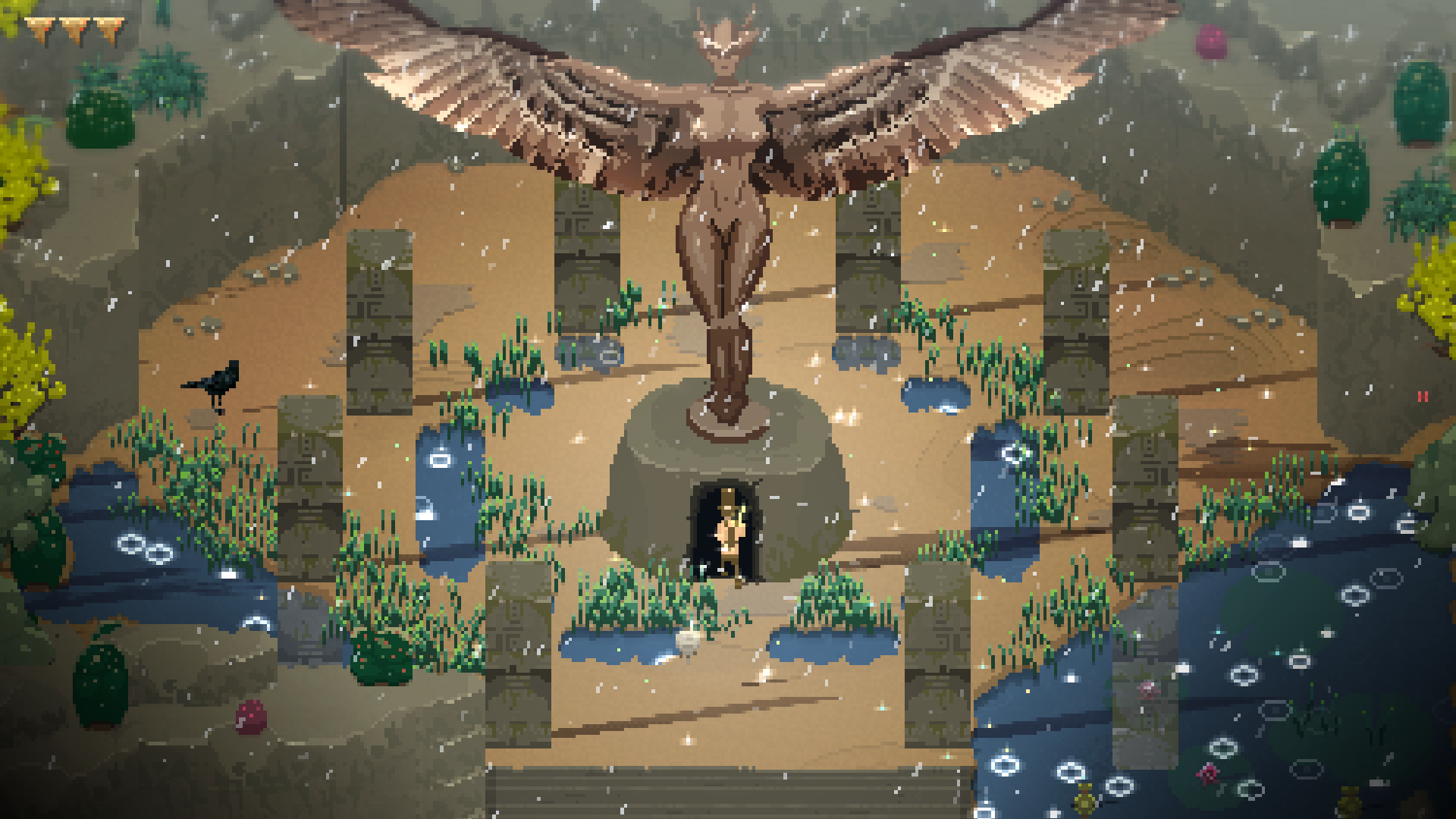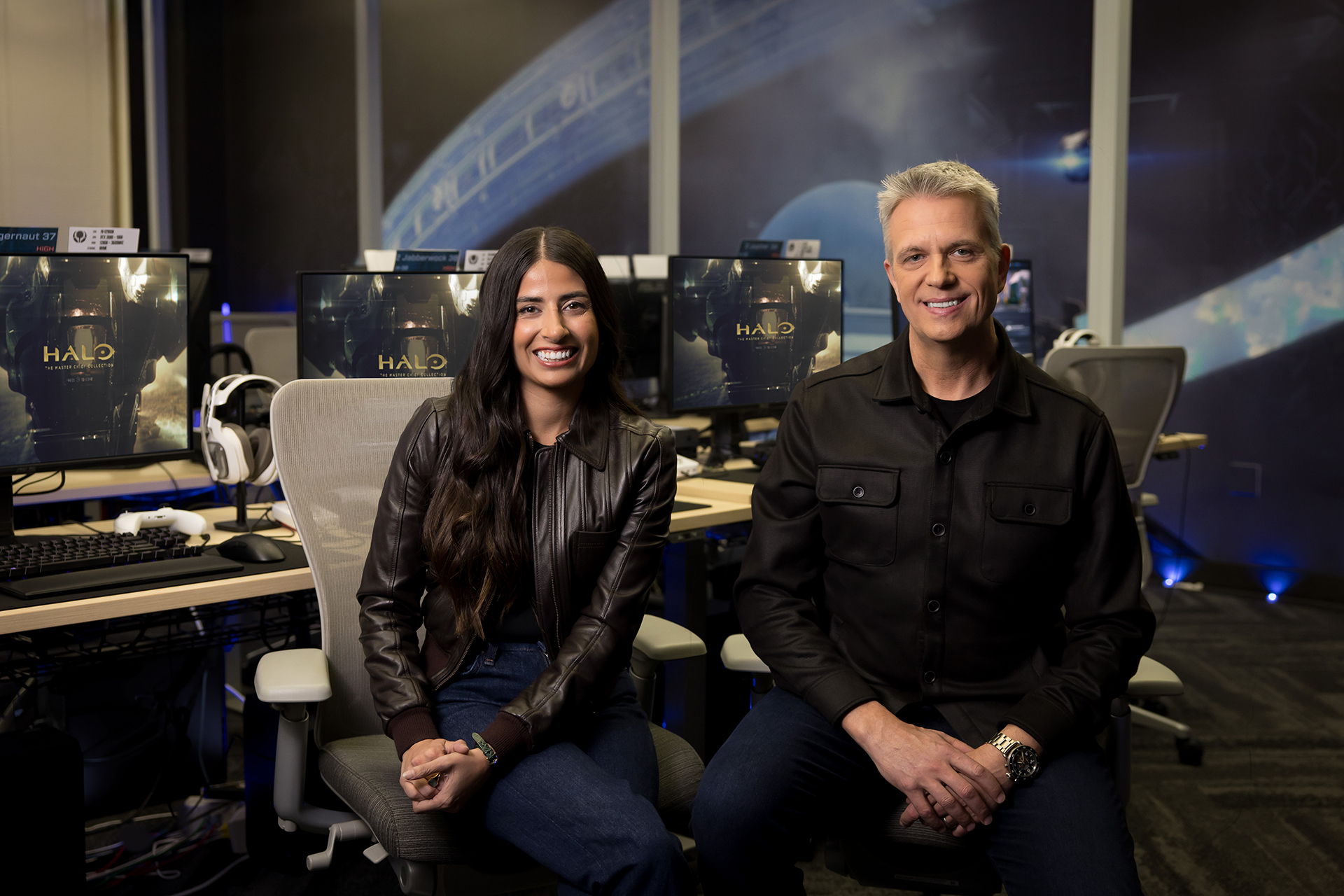Songbringer Plays Like Bizarre, Sci-Fi Legend of Zelda
Songbringer adopts the Legend of Zelda formula, with the magic of procedural generation to keep things fresh, playthrough after playthrough.
Here at Tom’s Guide our expert editors are committed to bringing you the best news, reviews and guides to help you stay informed and ahead of the curve!
You are now subscribed
Your newsletter sign-up was successful
Want to add more newsletters?

Daily (Mon-Sun)
Tom's Guide Daily
Sign up to get the latest updates on all of your favorite content! From cutting-edge tech news and the hottest streaming buzz to unbeatable deals on the best products and in-depth reviews, we’ve got you covered.

Weekly on Thursday
Tom's AI Guide
Be AI savvy with your weekly newsletter summing up all the biggest AI news you need to know. Plus, analysis from our AI editor and tips on how to use the latest AI tools!

Weekly on Friday
Tom's iGuide
Unlock the vast world of Apple news straight to your inbox. With coverage on everything from exciting product launches to essential software updates, this is your go-to source for the latest updates on all the best Apple content.

Weekly on Monday
Tom's Streaming Guide
Our weekly newsletter is expertly crafted to immerse you in the world of streaming. Stay updated on the latest releases and our top recommendations across your favorite streaming platforms.
Join the club
Get full access to premium articles, exclusive features and a growing list of member rewards.
SAN FRANCISCO – The trouble with The Legend of Zelda games is that while they really test your puzzle-solving skills the first time around, the second time can feel a little rote. Songbringer, an upcoming indie game from Wizard Fu, aims to give players everything they love about the Zelda formula with the magic of procedural generation to keep things fresh, playthrough after playthrough.

I got to play a brief level from Songbringer myself at GDC 2017, and while I didn’t get to see the game’s procedural generation in action, the gameplay and setting were more than enough to pique my interest. You play as a spacefaring protagonist with a sword, a few bombs, a deadly top hat and a small robot companion at his disposal. When his ship, the Songbringer, crashes on an unmapped world, he has to explore and best the harsh environment.
MORE: Most Anticipated Games
The demo started with the protagonist standing right outside the smoking ruins of the Songbringer, and the Zelda influence was apparent right away. From the top-down perspective, to the strange enemies who drop health and currency, to the varied environmental obstacles that require items to get past, I felt right at home with Songbringer. For the purposes of the demo, I needed to find a dungeon and get through it; the actual game will be a little more freeform, although dungeon exploration will still play a big role.
Navigating the overworld was simple enough, and gave me a chance to observe the deliberately retro, pixelated art style. The overworld will also vary considerably in each game. The procedural generation works by entering six letters at the beginning of your journey, each one of which affects the makeup of the world. No two players will have the same experience – unless you deliberately choose the same letter combination. Even the music is procedurally generated, strung together on the fly from various note and chord patterns.
The dungeon, too, had some unexpected twists. I fought some enemies, found a locked door, and discovered a secret room. So far, so Zelda. However, upon finding a key and journeying further in, I found myself face-to-face with a boss: a giant ram-skulled demon with a huge hammer. I expected that I would have had to explore the dungeon completely before confronting him, but in Songbringer, anything can happen.
I laid him low with a combination of swordplay and well-placed bombs, then claimed the usual reward: a boost to my health and a whole lot of cash and items. As in Zelda, the loot from the dungeon will help players reach the next area, but since there are no hard-and-fast rules about how to explore, you could find yourself doing dungeons in any order, or exploring tough levels first and easier ones later on.
Get instant access to breaking news, the hottest reviews, great deals and helpful tips.
Songbringer seems like the type of game that’s hard to put down, even if you only play it once. When players start comparing procedurally generated worlds and seeing which ones offer the strangest sights, the community could get even more interesting. The game will be out later this year for PC, Mac, Linux, Xbox One and PS4. You can preorder it now for $16, but the final cost will be a little bit higher.

Marshall Honorof was a senior editor for Tom's Guide, overseeing the site's coverage of gaming hardware and software. He comes from a science writing background, having studied paleomammalogy, biological anthropology, and the history of science and technology. After hours, you can find him practicing taekwondo or doing deep dives on classic sci-fi.
 Club Benefits
Club Benefits










